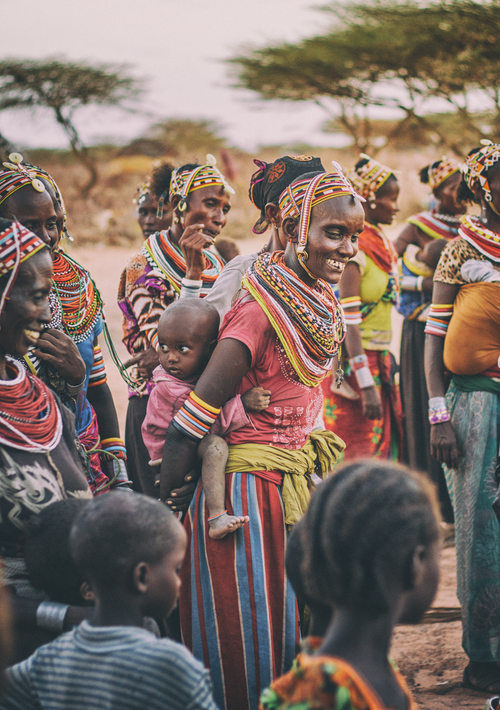Kenya’s forests underpin the productivity of key economic sectors in the country, including agriculture, horticulture, tourism, wildlife and energy. This productivity accounts for 3.5 percent of the country’s GDP and contributes about US$64 million to the economy, employing over 50,000 people directly and another 300,000 indirectly. Further, forest ecosystems enhance resilience while mitigating the adverse effects of climate change. Hence Kenya’s vision for development cannot be achieved without the adequate protection and sustainable management of forested lands.
While protecting forests is a key component in forest conservation, attention to human rights should be central while implementing activities that protect forests, especially for communities living within and close to forests. As such, it is important that duty-bears - those responsible for the protection of forests - incorporate a human-rights-based approach in all activities pertaining to forest conservation and management. UNDP Kenya and the Ministry of Environment and Forestry have been working with two partners, Kenya Forest Services (KFS) and Kenya National Commission on Human Rights (KNCHR) through the Forest Carbon Partnership Facility (FCPF) REDD+ Readiness Project, to enhance awareness and infuse Human Rights Based Approach Principles in forest conservation and management.
With funding from the World Bank’s FCPF, UNDP Kenya and the Ministry of Environment and Forestry have deliberated on a coordinated approach to implementing the various incentives needed for forest conservation and management with a human rights-based approach.
One way to ensure a human rights-based approach is to train Kenya Forest Service Enforcement Officers (entrusted with the duty and legal responsibilities of protecting, conserving, and managing forests). The KNCHR and KFS have developed a Human Rights-Based Approach (HRBA) Manual and curriculum that will provide the enforcement team with skills to address pertinent and emerging human rights challenges within forest conservation. These challenges have often hampered the close working relationship with forest communities and human rights compliance organizations such as KNCHR. The manual and curriculum will be used as a training tool for the Kenya Forest Service Enforcement and Compliance Division at KFS College at Londiani and will build awareness of human rights at all KFS stations. Both KFS and KNCHR have established a joint team to build capacity, as well as to investigate and address complaints of human rights abuses and violations in the forestry sector.
Speaking to the multi-agency technical team who developed the HRBA Manual at the Kenya School of Government, Mombasa, the Chief Conservator of Forests Mr. Julius Kamau noted that :
“The Service [KFS] protects forests and is a driver and enabler of human rights,” said Julius Kamau, Chief Conservator of Forests. “The technical team must ensure that they build capacity in forest adjacent communities to understand this human rights-based approach. The team here has made history by virtue of coming together for the very first time to draft this manual, an historic process that has not been done before.”
“Through the UN-REDD Programme, UNDP supports countries in REDD+ readiness to develop national REDD+ strategies and investment plans which provide the overall vision, policies, measures and actions to address deforestation and forest degradation,” said Walid Badawi, UNDP Resident Representative in Kenya. “In doing so, UNDP has applied robust social and environmental safeguards to ensure that indigenous peoples, local communities and forest dependent communities are benefiting from efforts to mitigate climate change while protecting their human rights.”
Kenya’s application of the human rights-based approach to forest conservation is an important continuation of the country’s effort, supported by UN-REDD, to develop guidelines for stakeholder engagement and free, prior and informed consent for REDD+ activities.
Training forest officers, support staff and other stakeholders in forest conservation, management and protection to adopt a human rights-based approach will ensure that environmental safeguards are adhered to and human rights preserved. Mainstreaming a HRBA in forest protection, especially with enforcers such as KFS, will not only increase operational efficiency, but also improve the relationship with stakeholders. This, in turn, will lead to more participation from communities and indigenous peoples in sustainable conservation and management of forests.

